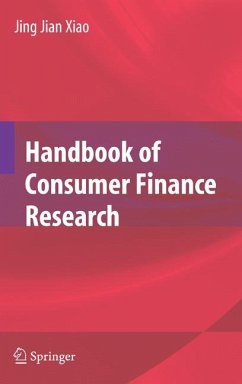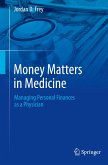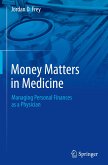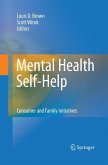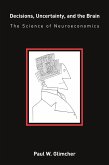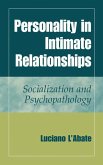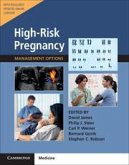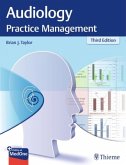Debt consolidation; pension givebacks; Social Security under siege; bankruptcies and foreclosures; Americans' financial lives are fraught with issues, challenges, and potential threats, in record numbers. The Handbook of Consumer Finance Research surveys the social aspects of consumer behavior, offering latest data and original research on current consumer needs as well as identifying emerging areas of research. This accessible volume (which can be read without advanced training in the field) starts with current concepts of risk tolerance, consumer socialization, and financial well-being, and moves on to salient data on specific settings and populations, including: Healthcare spending and retirement savings; Online shopping and e-banking; Family finances: marriage, parent/child communications, student spending; Financial concerns of special groups: minorities, seniors, the poor; Management issues of business-owning families; Consumer protection in fair lending.
Given the current climate of rising debt and negative savings, the Handbook is timely and instructive reading for educators, researchers, and policymakers who wish to develop or evaluate financial education programs, design research initiatives, and understand better how to help families with the economic problems of our times. It can also serve as a graduate text in economics, finance, consumer science, business, and family studies.
Given the current climate of rising debt and negative savings, the Handbook is timely and instructive reading for educators, researchers, and policymakers who wish to develop or evaluate financial education programs, design research initiatives, and understand better how to help families with the economic problems of our times. It can also serve as a graduate text in economics, finance, consumer science, business, and family studies.
From the reviews:
"Edited by Jing J. Xiao, a professor at the University of Rhode Island, Handbook of Consumer Finance Research was written by 25 consumer finance researchers and educators and reviewed by 25 of their peers. In other words, some of the best minds in the field of financial education and research helped inform its content... Each chapter is well-written and meticulously researched with a brief abstract, a thorough literature review, and pages of references that document each citation. Several of the chapters also contain findings from the authors' personal research studies.
Handbook of Consumer Finance Research is a valuable publication for financial advisors, financial educators, and other practitioners who work at the 'grass roots' level with clients and/or students... The Handbook is, quite simply, one of the most comprehensive compilations of consumer finance research ever written. For that, all financial advisors and educators owe the chapter authors and editor a big debt of gratitude."
- Barbara O'Neill, Ph.D., CFP®, Rutgers University, Review for Journal of Personal Finance
"Although the handbook was developed with educators, researchers, and policy makers in mind, financial practitioners will gain additional insight ... Instructors looking for a textbook for college juniors and seniors could use the handbook... Graduate students in search of a theoretical framework or a research question will read the handbook from cover to cover... I believe that, this handbook is a rich source of information on consumer finance research." Sharon A. DeVaney, Ph.D., Purdue University, Review for Financial Counseling and Planning, Vol. 19 (1), 2008
"Both academics and classroom teachers will find this book a valuable resource. For both novice and veteran researchers, it represents an excellent source of literature to begin research and find references to close knowledge gaps andbuild scholarly connections. Its classroom applications, as a supplementary or stand-alone text, are not limited to consumer finance; yet extend to psychology, sociology, and education. A handbook of research that contains such valuable information can only stimulate needed classroom conversations and encourage further study." Thomas A. Lucey, Ph.D., Illinois State University, Review for Journal of Family and Economic Issues
"Edited by Jing J. Xiao, a professor at the University of Rhode Island, Handbook of Consumer Finance Research was written by 25 consumer finance researchers and educators and reviewed by 25 of their peers. In other words, some of the best minds in the field of financial education and research helped inform its content... Each chapter is well-written and meticulously researched with a brief abstract, a thorough literature review, and pages of references that document each citation. Several of the chapters also contain findings from the authors' personal research studies.
Handbook of Consumer Finance Research is a valuable publication for financial advisors, financial educators, and other practitioners who work at the 'grass roots' level with clients and/or students... The Handbook is, quite simply, one of the most comprehensive compilations of consumer finance research ever written. For that, all financial advisors and educators owe the chapter authors and editor a big debt of gratitude."
- Barbara O'Neill, Ph.D., CFP®, Rutgers University, Review for Journal of Personal Finance
"Although the handbook was developed with educators, researchers, and policy makers in mind, financial practitioners will gain additional insight ... Instructors looking for a textbook for college juniors and seniors could use the handbook... Graduate students in search of a theoretical framework or a research question will read the handbook from cover to cover... I believe that, this handbook is a rich source of information on consumer finance research." Sharon A. DeVaney, Ph.D., Purdue University, Review for Financial Counseling and Planning, Vol. 19 (1), 2008
"Both academics and classroom teachers will find this book a valuable resource. For both novice and veteran researchers, it represents an excellent source of literature to begin research and find references to close knowledge gaps andbuild scholarly connections. Its classroom applications, as a supplementary or stand-alone text, are not limited to consumer finance; yet extend to psychology, sociology, and education. A handbook of research that contains such valuable information can only stimulate needed classroom conversations and encourage further study." Thomas A. Lucey, Ph.D., Illinois State University, Review for Journal of Family and Economic Issues

